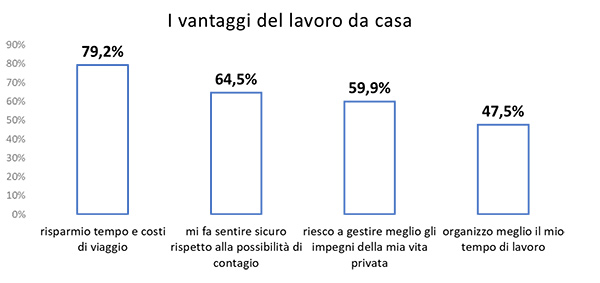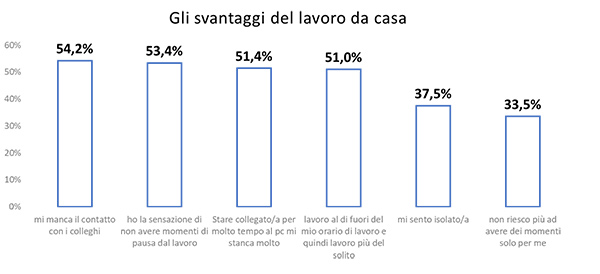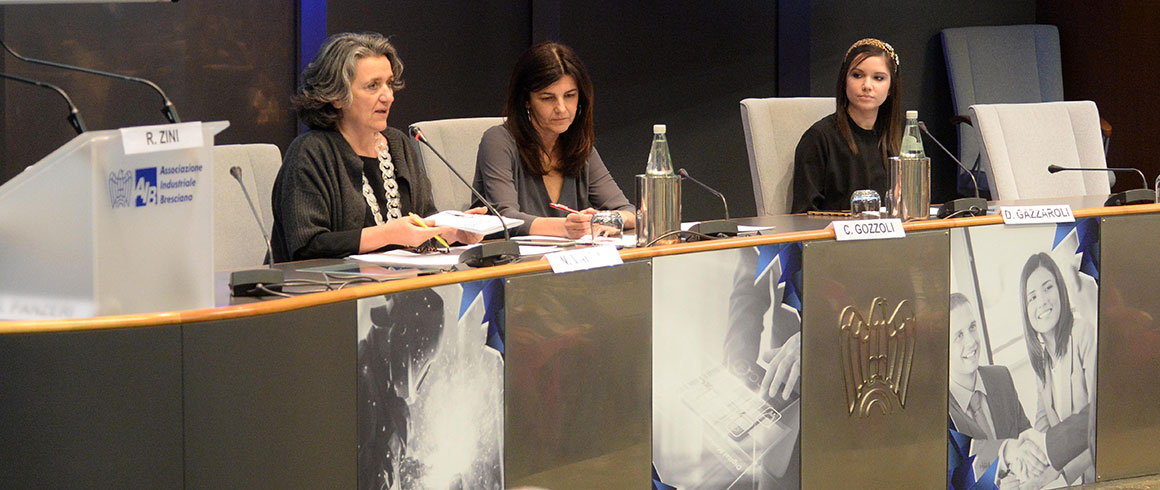Six key words in the acronym HOWCARE which gives its name to a project funded by the Centre for Family Studies and Research of the Università Cattolica: Health emergency On Workers across Countries: Analysis, Responses, Effectiveness.
How can work and relationships be reconciled in the times of Covid-19? From phase 1 to phase 2 of the pandemic, a multidisciplinary team of researchers from the University Centre for Family Studies and Research investigated the data emerging from 446 participants in the study. 82% of the sample are women, 73.5% are married or cohabiting, 69.7% have children and 58.2% are employees.
The research is still in progress and continues by analysing the so-called "new normality" phase.
It is clear that, from the first to the second phase, contagions have decreased but the situation in the families of the interviewees has not improved, especially for women. Moreover, in July 2020, child care is still entirely on the shoulders of family resources (82%).
As to the measures introduced by the government with the Cura Italia decree, the percentage of use is exceptionally low in the sample of respondents. Among the most appreciated measures, for those who have benefited from them, there are baby-sitting bonuses and summer centres, while parental leave is less satisfactory.
Overall, the Government appeared to be far from the needs of families, especially where there are underage children. For 71.3% of these parents, the decisions taken by the Government took little (or no) account of the different needs of families, providing support suitable for different situations, and 68.7% believe that the decisions taken by the Government did not help families find a balance.
After the first emergency phase in phase 2, and despite the resumption of activities, the organisational management of families with minor children and/or caregivers was problematic and was added to the threat to their health and economic uncertainty.
Faced with such an uncomfortable situation, companies can make a real difference. In fact, company welfare initiatives have been implemented and represent an important support if they are carefully tailored to the real needs of workers and their families. In those companies that have activated psychological and income support initiatives, insurance coverage, parent and caregiver support initiatives, workers have reported higher levels of performance and job satisfaction, identification with the company and lower levels of stress. "Several companies are already carrying out welfare initiatives for reconciliation: for example, teachers who provide online support to the children of the employees; call centres who help those with dependent family members to take advantage of tax relief, to find nurses and carers" ‒ said Claudia Manzi, research project coordinator.
"A viable and effective solution from an institutional point of view ‒ pointed out the professor ‒ could be that the government shall support work organizations in the provision of corporate welfare initiatives through, for example, the introduction of additional tax relief".
Interestingly, the study observes the working method in greater detail. In 51% of cases it was chosen in agreement with the company, in 33% of cases it was imposed and meets the needs of the interviewees, while for the 16% it was imposed and does not take into account the needs of the other party.
In Italy, the use of flexible working from home, improperly called smart working, has increased from 8% to over 40% in recent months. This working method has been welcomed by the majority of the interviewees: more than 1 worker out of 2 reports to be very or very happy about working from home, a win-win solution, perceived as advantageous for both parties, workers and companies. The advantage, however, is mainly felt by those who have children of full age or have no children and only by those who, having good support from their partner, can make it less difficult to manage family burdens or work stress.
 In general, beyond stereotypes, the advantages of working from home are there. 79.2% of respondents claim to have savings in time and travel costs, 64.5% feel safe about the possibility of infection, 59.9% manage their private life commitments better, 47.5% organise their work time better (Chart 13).
In general, beyond stereotypes, the advantages of working from home are there. 79.2% of respondents claim to have savings in time and travel costs, 64.5% feel safe about the possibility of infection, 59.9% manage their private life commitments better, 47.5% organise their work time better (Chart 13).
 However, there are also disadvantages (Chart 14). It is interesting to discover that, contrary to expectations given by a superficial glance, parents with underage children are the ones who suffer most from the absence of colleagues, the increased workload at home and the lack of personal free spaces. In particular, 54.2% of those interviewed (62.1% are parents of underage children) lack contact with people on the workplace, 53.4% feel that they do not have a break from work, 51.4% stay connected to the computer for a long time and get very tired, 51% (of which 59.3% are parents of minors) work outside their working hours and therefore much more than usual, 37.5% (of which 44.9% are parents of minors) feel isolated, 33.5% (of which 46.3% are parents of minors) are not able to find moments just for themselves anymore.
However, there are also disadvantages (Chart 14). It is interesting to discover that, contrary to expectations given by a superficial glance, parents with underage children are the ones who suffer most from the absence of colleagues, the increased workload at home and the lack of personal free spaces. In particular, 54.2% of those interviewed (62.1% are parents of underage children) lack contact with people on the workplace, 53.4% feel that they do not have a break from work, 51.4% stay connected to the computer for a long time and get very tired, 51% (of which 59.3% are parents of minors) work outside their working hours and therefore much more than usual, 37.5% (of which 44.9% are parents of minors) feel isolated, 33.5% (of which 46.3% are parents of minors) are not able to find moments just for themselves anymore.
Finally, the research shows that working from home improves the work performance only of "expert smart workers" without children.
"Workers should be well profiled by mapping their needs and identifying solutions that can support them ‒ specified the professor ‒ We need to consider the differences between those who already used to work from home and were digitally literate before the lockdown and those who had to improvise new skills and abilities and still need training".
The HOWCARE research, in summary, suggests what is indicated by the acronym itself, i.e. how to take care of people who are individuals, partners, children and workers at the same time. Progressive adaptation to new ways of working can be positive but at the moment it does not represent a solution in terms of reconciliation between family and work for those who have more important care loads. Institutions and organisations must enter the field in order to propose more suitable solutions for everyone and in particular for workers with minor children, who are facing intermittent school closures and the complete stop of extracurricular activities once again.




